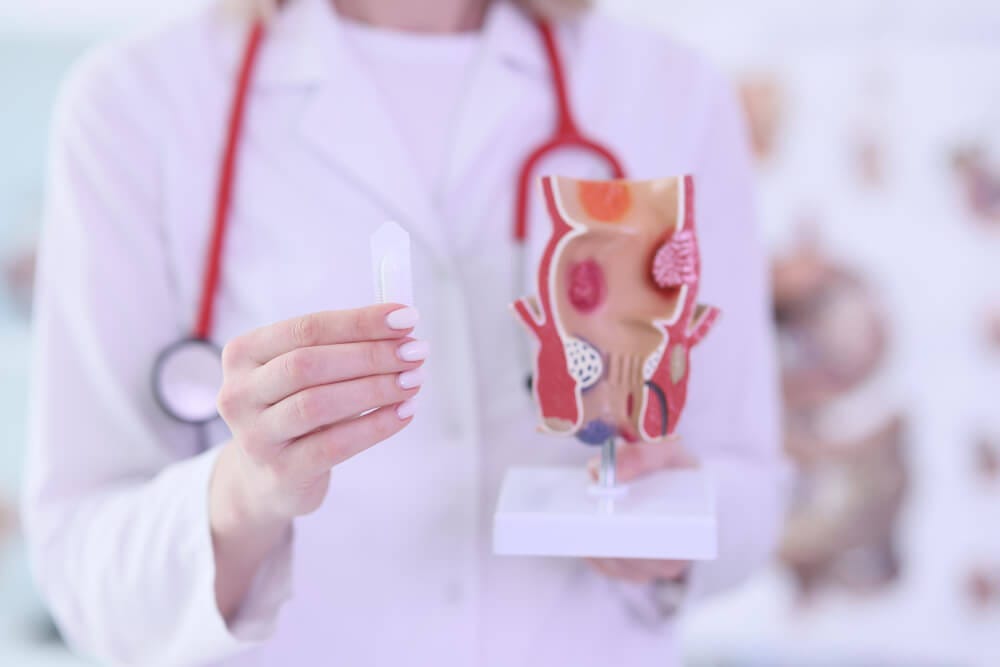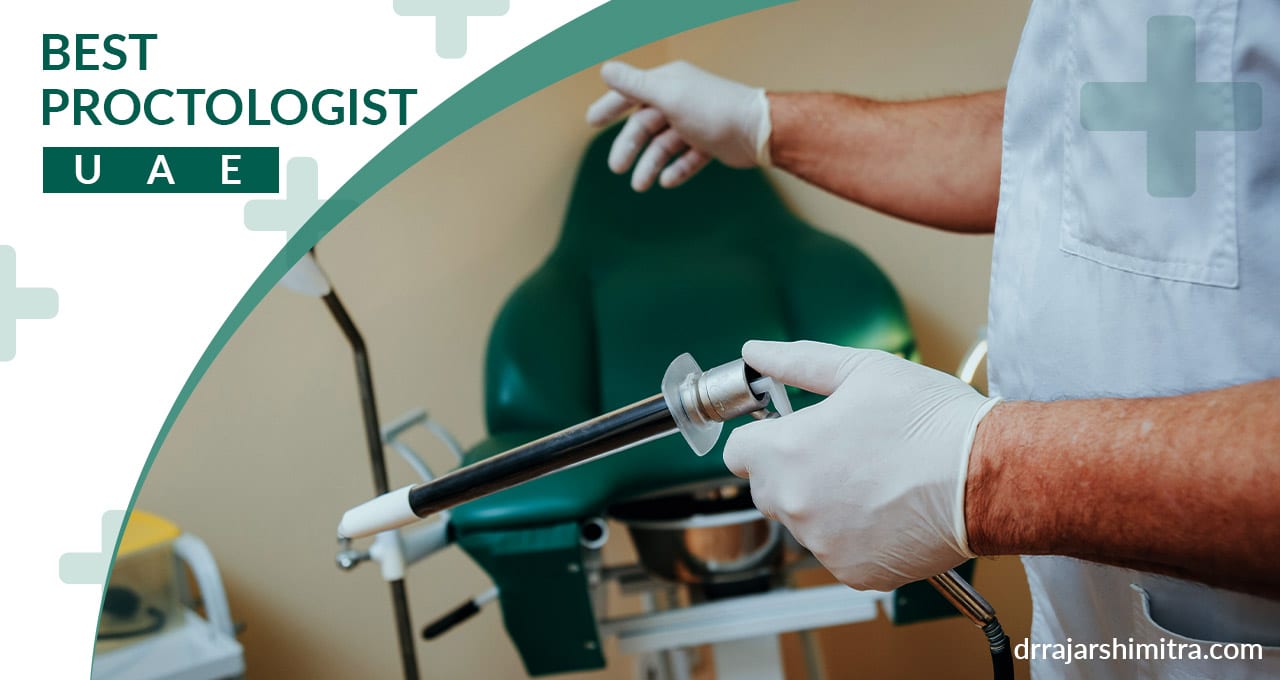Navigating the holy month of Ramadan involves spiritual reflection and careful consideration of one’s physical health, especially when dealing with proctology concerns. Yes, proctology concerns and Ramadan can trigger health issues if you don’t follow the right path for safe and healthy fasting.
For those among you observing this period, understanding how fasting can impact conditions like hemorrhoids or digestive issues is crucial. We aim to arm you with expert advice to ensure your fasting experience remains comfortable without compromising your proctology health.
By integrating medical insights into your Ramadan routine, you can address these sensitive issues effectively while honoring your religious commitments.
Proctology Concerns And Ramadan: Quick Facts
- Fasting during Ramadan can be safely practiced by individuals with proctology concerns, but it requires careful planning and adherence to expert advice to ensure a comfortable experience.
- Dietary adjustments and lifestyle modifications are essential for managing chronic health conditions and digestive disorders during Ramadan, emphasizing the importance of pre-dawn and post-sunset meal planning.
- Bariatric surgery patients need to follow specific dietary and lifestyle recommendations during Ramadan to avoid complications, highlighting the need for consultation with healthcare providers before fasting.
- To prevent constipation, a common issue during Ramadan, increase fiber intake, stay hydrated, and incorporate light physical activity into your daily routine.
- Individuals with liver diseases can observe Ramadan fasting under medical supervision, ensuring they follow prescribed dietary guidelines and monitor their condition closely.
- For colorectal cancer patients, fasting during Ramadan should be approached with caution and under the guidance of healthcare professionals to avoid adverse effects on their health.

Understanding Proctology Concerns and Ramadan
Common Issues
Fasting during Ramadan can worsen some proctological problems. Hemorrhoids, anal fissures, and constipation are common concerns. The change in diet and eating patterns might trigger these issues.
Hemorrhoids may flare up due to dehydration or less fiber intake. Anal fissures could become more painful without proper hydration. Constipation is often a result of reduced water consumption.
Signs for Consultation
Knowing when to see a proctologist is crucial during Ramadan. Look out for persistent pain, bleeding during bowel movements, or unusual changes in stool patterns.
Persistent discomfort should not be ignored. Bleeding might indicate hemorrhoids or something more serious, like polyps. Changes in stool consistency or frequency could signal underlying conditions needing immediate attention.
Importance of Hydration
Staying hydrated is key to preventing rectal discomfort while fasting. It helps maintain regular bowel movements and reduces the risk of constipation.
Drink plenty of water between Iftar (evening meal) and Suhoor (pre-dawn meal). Include high-water-content foods such as fruits and vegetables in your meals. Avoid caffeinated drinks as they can lead to dehydration.
Expert Advice for Comfortable Fasting
Eating Schedule
To ensure your fasting experience during Ramadan is comfortable, especially considering proctology concerns, it’s vital to schedule eating times wisely. This strategy helps maximize nutrient absorption and maintain energy levels throughout the day.
Eating at pre-determined times can significantly reduce discomfort and support healthy digestion. For Suhoor, choose high-fiber foods such as fruits, vegetables, and whole grains.
These options aid in digestion and help you feel full longer. Remember, a well-planned meal schedule aligns with both medical advice and fasting practices.
Hydration Tips
Staying hydrated between Iftar and Suhoor is crucial to minimize digestive issues while fasting. It’s recommended that you drink plenty of water during these hours.
Aim to consume water gradually throughout the night rather than all at once to ensure better hydration without overwhelming your system. Including drinks like herbal teas can also be beneficial for maintaining hydration levels without adding unnecessary sugars or calories.
- High-fiber foods for Suhoor: Whole grains, fruits, vegetables.
- Hydration: Drink water gradually; include herbal teas.
Effects of Fasting on Digestive Disorders
GERD & IBS
Fasting might make GERD or IBS symptoms worse. Your digestive system can be sensitive during Ramadan. Spicy and acidic foods at Suhoor and Iftar could cause flare-ups.
To manage, eat small, frequent meals when not fasting. This eases your stomach’s load. It helps prevent adverse effects like dyspeptic symptoms.
Food Choices
Avoid certain foods to protect your stomach. During Suhoor and Iftar, steer clear of spicy and acidic items. They can lead to significant changes in your GI tract.
Opt for foods that are gentle on the digestive system. These include lean proteins, vegetables, and whole grains. Such choices help minimize the risk of peptic ulcers or GI bleeding from oxidative stress.

Dietary and Lifestyle Recommendations
Modified Fasting Plan
After understanding the effects of fasting on digestive disorders, it’s crucial to approach Ramadan with a tailored plan. Your surgeon or dietitian can approve a modified fasting plan that aligns with your post-surgery needs.
This plan might adjust food intake times without compromising the spiritual observance of Ramadan.
A focus on protein intake is essential. Protein helps in maintaining muscle mass while losing fat. It supports your weight loss goals effectively. Avoid sugary drinks as they can lead to weight gain and disrupt your metabolic rate.
Physical Activity Post-Iftar
Engaging in light physical activity after Iftar aids digestion and enhances your metabolic rate. Consider walks or gentle stretching exercises. These activities should be light enough not to strain you but sufficient to keep you active.
It’s also beneficial for supporting graft function by promoting overall well-being through increased circulation and improved digestion after food intake during Iftar.
Pros | Cons |
Supports sustained weight loss. | Requires careful planning. |
Enhances metabolic rate. | It may need adjustments based on individual health status. |
Improves digestion. |
Tips for Managing Constipation During Ramadan
Increase Fiber
To combat constipation during Ramadan, focus on your Ramadan diet. Include fruits, vegetables, and whole grains at Suhoor and Iftar. These foods are rich in fiber, which helps digestion.
Fruits like apples and oranges can be refreshing at Iftar. Vegetables should fill half your plate. Whole grains such as oats or brown rice are also beneficial. This balanced intake ensures a smoother digestive process.
Stay Hydrated
Drinking enough water is crucial between Iftar and bedtime. Aim for 8-10 glasses to promote bowel movements.
Water not only aids in digestion but also prevents dehydration during fasting hours. Try to distribute your water intake evenly throughout the non-fasting hours to maximize its benefits.
Ramadan Fasting and Liver Diseases
Liver Function
Fasting during Ramadan can affect your liver, especially if you have fatty liver disease. Your liver plays a crucial role in processing food into energy. It also filters harmful substances from your blood.
When fasting, the body uses stored glucose and fat for energy. This process puts extra work on your liver. For those with fatty liver disease, it’s important to monitor how fasting impacts this organ.
Healthy Eating Habits
Avoid overeating during non-fasting hours. Overloading your body with large meals can strain your liver further. Instead, focus on balanced meals that include:
- Lean proteins
- Whole grains
- Fresh fruits and vegetables
This approach helps manage weight and supports healthy liver function.
Monitoring Symptoms
Be vigilant for signs of liver distress, such as jaundice or unusual fatigue. These symptoms could indicate worsening of conditions like hepatitis or chronic hepatitis.
If you notice these signs, consult a doctor immediately. Early detection is key in managing liver diseases effectively.

Impact of Fasting on Colorectal Cancer Patients
Consult Oncologists
Before deciding to fast during Ramadan, it’s crucial for colorectal cancer patients to talk with their oncologist. This ensures the safety and feasibility of fasting, given your specific treatment phase and overall health condition.
Your doctor can offer tailored advice based on your chemotherapy schedule, potential side effects, and how fasting might affect your body.
Chemotherapy side effects often require careful management. Fasting without professional guidance could worsen these symptoms or interfere with treatment effectiveness. An oncologist can also monitor tumor biomarkers like carcinoembryonic antigens during this period to assess any impact of fasting.
Nutritional Focus
Prioritizing nutrient-dense foods before dawn (Suhoor) and after sunset (Iftar) is vital for maintaining strength and supporting your body through treatment. Choose meals rich in vitamins, minerals, proteins, and healthy fats to fuel your body efficiently.
Hydration plays a key role in counteracting common chemotherapy side effects such as dehydration or constipation. Drinking plenty of fluids outside fasting hours helps prevent complications like variceal bleeding associated with certain cancers.
Managing Chronic Health Conditions During Ramadan
Healthcare Consultation
Before Ramadan begins, it’s crucial to consult with a healthcare provider. This step ensures your medication schedules are adjusted properly. Your doctor might change the timing or dosage of your medications.
Adjusting your treatment plan is essential for maintaining health during fasting. For those undergoing specific treatments like anticancer therapy, seeking advice early on can help manage the schedule around fasting days.
Monitoring Symptoms
Closely monitoring symptoms is key during Ramadan. Know when it’s necessary to break your fast for health reasons. Ignoring serious signs can lead to complications.
Understanding how fasting affects you day-to-day helps you make informed decisions about continuing or breaking the fast. This awareness supports a healthier fasting experience without risking well-being.
Diabetic Care
For diabetic patients, recognizing the impact of fasting on blood sugar levels is vital. Changes in eating and medication times can cause fluctuations in blood glucose levels.
- Always monitor blood sugar closely.
- Adjust insulin or other diabetes medications as advised by your healthcare provider.
Maintaining stable blood sugar levels prevents both high and low extremes, which are dangerous for healthy people, especially during a month requiring significant routine changes.
Final Note From Dr. Rajarshi Mitra
Navigating Ramadan with proctology concerns requires understanding and careful management. You’ve seen how fasting impacts digestive disorders, liver diseases, and even colorectal cancer patients.
Expert advice offers practical solutions, from dietary adjustments to lifestyle changes, ensuring a comfortable fasting experience. Managing chronic conditions and understanding the effects of fasting on your body empowers you to observe Ramadan safely.
Embrace these guidelines to enhance your fasting journey. Remember, your health is paramount. Consult a healthcare professional for personalized advice tailored to your specific needs.
Let this Ramadan be a time of spiritual growth and physical well-being. Share your experiences and tips with others in similar situations, fostering a supportive community. Your journey could inspire and guide many.
FAQs
How can I manage proctology concerns during Ramadan?
To manage proctology concerns during Ramadan, consult with a healthcare professional before fasting. They can provide personalized advice based on your condition.
How should chronic health conditions be managed during Ramadan?
Individuals with chronic health conditions should seek medical guidance to adjust medication timings and dosages if necessary, ensuring safe fasting practices.
Can fasting affect digestive disorders?
Yes, fasting can impact digestive disorders by altering eating patterns and digestion times. Consultation with a healthcare provider is advised to tailor the fast accordingly.
What dietary recommendations are given to bariatric surgery patients during Ramadan?
Bariatric surgery patients are advised to consume small, protein-rich meals slowly and avoid sugary drinks during non-fasting hours for optimal nutrition.
How to manage constipation during Ramadan?
To manage constipation, increase intake of water and fiber-rich foods like fruits and vegetables outside of fasting hours, and engage in regular physical activity.
How does Ramadan fasting affect liver diseases?
Fasting may influence liver disease symptoms or medication efficacy. Liver disease patients must consult their doctor before observing the fast for specific guidelines.
What is the impact of fasting on colorectal cancer patients?
Colorectal cancer patients should discuss their diet plans and any potential risks associated with prolonged periods without food or drink with their oncologist prior to participating in Ramadan fasts.



















